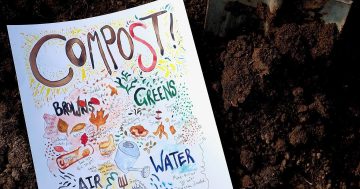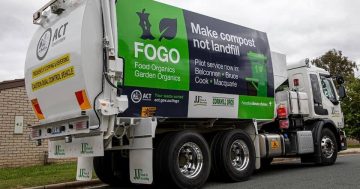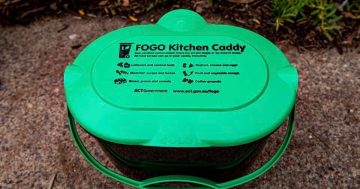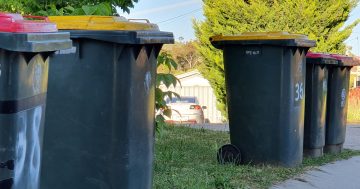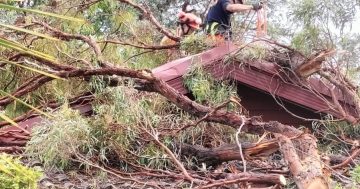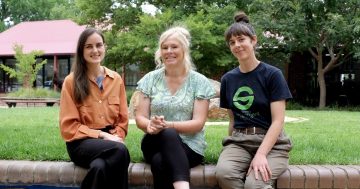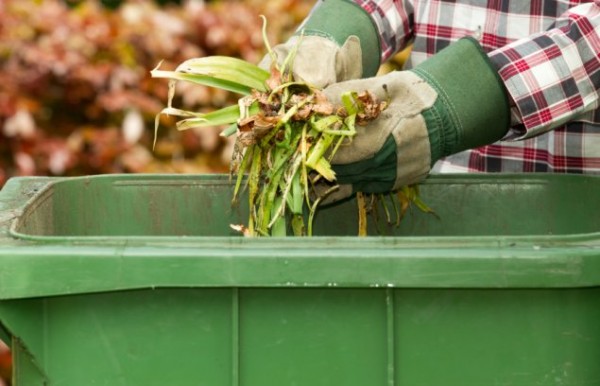
The current green bins only take garden waste. File photo.
Up to 40,000 tonnes of food waste a year could be diverted from landfill if the ACT’s green bins were not limited to garden waste, according to the ACT Greens.
Greens MLA Caroline Le Couteur has launched a campaign to convince the ACT Government to allow households to be able to dispose of their food scraps in the green bin, the contents of which would be converted into compost, or ‘black gold’ as it is known.
At present the green bins, most of which rolled out in April, only take garden waste which is converted to mulch.
Ms Le Couteur said 30 per cent of household waste is food waste, and while many compost on site, not all have the time or are able to.
She said food waste should not be rotting in landfill, creating methane and contributing to harmful greenhouse gas emissions.
Composting Canberra’s residential food waste would reduce the ACT’s greenhouse gas emissions that come from food waste by 96 per cent.
Local councils in NSW, such as Queanbeyan’s, had been collecting food waste for composting for years and it was time the ACT caught up, Ms Le Couteur said.
“Given that we have made a commitment to zero emissions by 2045 this is the step we need to take,” she said.
“This not a new idea. We should be turning our food waste into something useful. We should be closing the loop – food waste into compost into food again. Other people are doing it so we can do it.”
Ms Le Couteur also called for food businesses to be required by regulation to start disposing of their waste better and have it composted.
She suggested biodegradable bags could be provided to households for efficient disposal and placement in the green bin.
People who join the campaign will receive a free ‘Compost not Landfill’ sticker to place on their kerbside landfill bin.
Minister for City Services Chris Steel said there was more to food waste than just collecting it, ‘we need to work out where and how to process the waste’.
“We have already been running a public consultation with the community and industry on whether advanced forms of composting like anaerobic digestion could play a role in Canberra,” he said.
“Our current planning work on food collection is based on the Waste Management Strategy 2011 and reaffirmed in our Waste Feasibility Study in 2018. There are a number of recommendations in the Strategy that the Government is looking at implementing before 2025 including food and organic waste. The Government was committed to rolling out green bins to all of Canberra first – which it has done ahead of schedule and under budget.”












